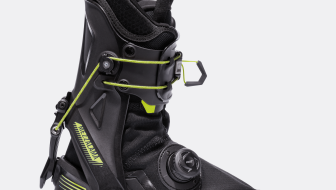Last week, The Avalanche Project emerged as the new face of Project Zero, an initiative launched in 2013 to reduce North American avalanche fatalities to zero by 2025. The revised emphasis of The Avalanche Project aims to create a collaborative dialogue and messaging surrounding avalanche awareness.
The rebranding comes as a response to confusion over the relationship between Project Zero and their 2015 “Backcountry Starts Here” social media campaign. “By changing the name to combine the brand and the campaign into The Avalanche Project we are able to deliver clear consistent messaging through all channels in the industry,” states a press release issued last week.
Tim Bennet, executive director of the American Institute for Avalanche Research and Education (AIARE), a member of The Avalanche Project, explains that the rebranding introduces the streamlined mission to “spread a culture of snow-based mountain safety and responsible recreation through collaborative action and cohesive messaging.”
“It is important to distinguish between goals and visions,” Bennet says. “Vision is to eliminate preventable avalanche fatality. That sets the compass. In our mind, the goals are to create cultural and behavioral change.”
The tenets of this new educational program are simple: 1) Get the gear 2) Get the training 3) Get the forecast. Bennet explains that The Avalanche Project will endeavor to disseminate this information in several ways, including focusing on retailers, not just recreationists.
“Often, that retailer is the first interaction someone has in engaging with backcountry travel,” Bennet says. “We are trying to push messaging to them and work within their retail clinics and employee trainings. We want these retailers to not just be knowledgeable with product but knowledgeable as an [avalanche] resource.”
In addition to engaging retailers, The Avalanche Project seeks to create a more comprehensive community dialogue among all backcountry users, amateurs and professionals alike. The Avalanche Project ambassador program provides an avenue for people to facilitate avalanche education through sharing experiences with the broader backcountry community.
Abby Cooper, a photographer and writer based in Whistler, B.C., originally connected with Project Zero to become an ambassador after she was buried in an avalanche in late December 2014.
“It’s weird, you have all of your friends around you, but it’s still kind of lonely because it is a crazy experience that not many people can relate to,” Cooper says. “Having that online community helps fill that void I felt not being able to connect and share my experience with like-minded people”
It is stories like Cooper’s that The Avalanche Project’s philosophy is built on. Getting proper avalanche education is complex, a fact Bennet is aware of, and he advocates for an evolution in avalanche awareness that accounts for new learning opportunities.
“What I see in this industry is a network of people who are entrenched,” Bennet says. “They have done a really good job of delivering Level I, Level II and Level III avalanche training programs, but we haven’t engaged the full spectrum of people.”
Cooper exemplifies The Avalanche Project’s new vehicle for engagement—personal connection. And she continues to pass on the gospel of a diverse avalanche education. “Knowledge is power,” she says, “and you can not have enough of it when it comes to the backcountry.”
—
For more information on The Avalanche Project, visit theavalancheproject.org.









Related posts: